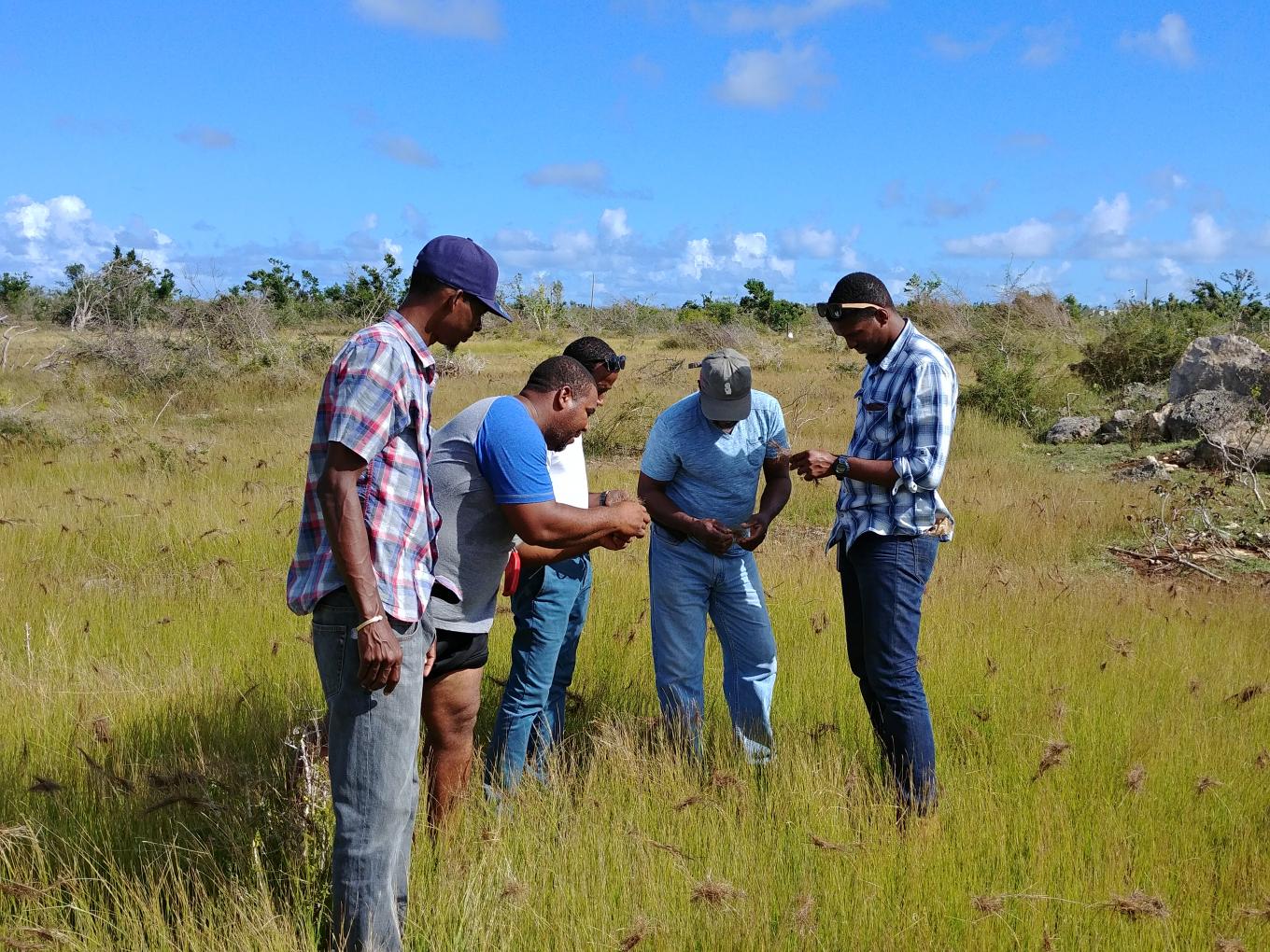Entities related to Antigua and Barbuda’s agriculture sector shared their technical viewpoints to enrich the document that will guide the Institute’s cooperation actions over the next four years.

St. John’s, 20 March 2018 (IICA). A total of twenty-five key stakeholders and partners who are directly and indirectly linked to Antigua and Barbuda’s agriculture sector outlined crucial information to contribute to the preparation of the Institute’s 2018-2022 Medium-term Plan, which will guide the work conducted by IICA for the benefit of local agriculture.
By means of a survey, the stakeholders identified topics on which IICA’s work should focus, highlighting planning, agricultural chains, agro-tourism linkages, local and regional market access, agricultural health and food safety, matters related to Codex Alimentarius, alternative energy sources, risk management, commodity development, efficient use of natural resources, and climate change.
Climate change mitigation was considered a priority by many of the survey respondents, due to the recent passage of hurricanes Irma and Maria, which caused extensive damage to the Caribbean region, weakening a number of sectors and food security in particular.
Numerous interviewees underscored the importance of networking and institutional coordination between IICA and other agencies such as the Caribbean Agricultural Research & Development Institute (CARDI) and the United Nations Food and Agriculture Organization (FAO). Inter-institutional and sectoral coordination was identified as a means for building capabilities for institutional modernization processes, as well as for developing and supporting management and monitoring processes, and projects related to agriculture and rural development.
“The overall planning and reorganizing of the agriculture sector in Antigua and Barbuda must be addressed. IICA could play a critical role in this process by promoting and facilitating efforts geared toward repositioning the agriculture sector and rural life, as well as strengthening the capabilities of entrepreneurs to create market linkages add value to products and services,” stated Jedidiah Maxime, Director of the Ministry of Agriculture, Lands, Fisheries & Barbuda Affairs (MoLFBA), during the meeting with local stakeholders.
The entities participating in the consultation process suggested that IICA could collaborate with other regional and international institutions to assist in designing and developing niche commodities within Barbuda’s agriculture sector.
During the meeting, Craig M. Thomas, National Specialist at the IICA Delegation in Antigua and Barbuda, underscored the need for greater planning and agro-tourism linkages, as well as capacity-building efforts for the benefit of agribusiness groups, partnerships, cooperatives and associations.
A number of public and private institutions including the Ministry of Agriculture, the Antigua and Barbuda Bureau of Standards, the Antigua and Barbuda Investment Authority, CARDI, Private Farmers and Input Suppliers, as well as the production and academic sectors, participated in this consultation process.
More information:
Craig M. Thomas, National Specialist at the IICA Delegation in Antigua and Barbuda










